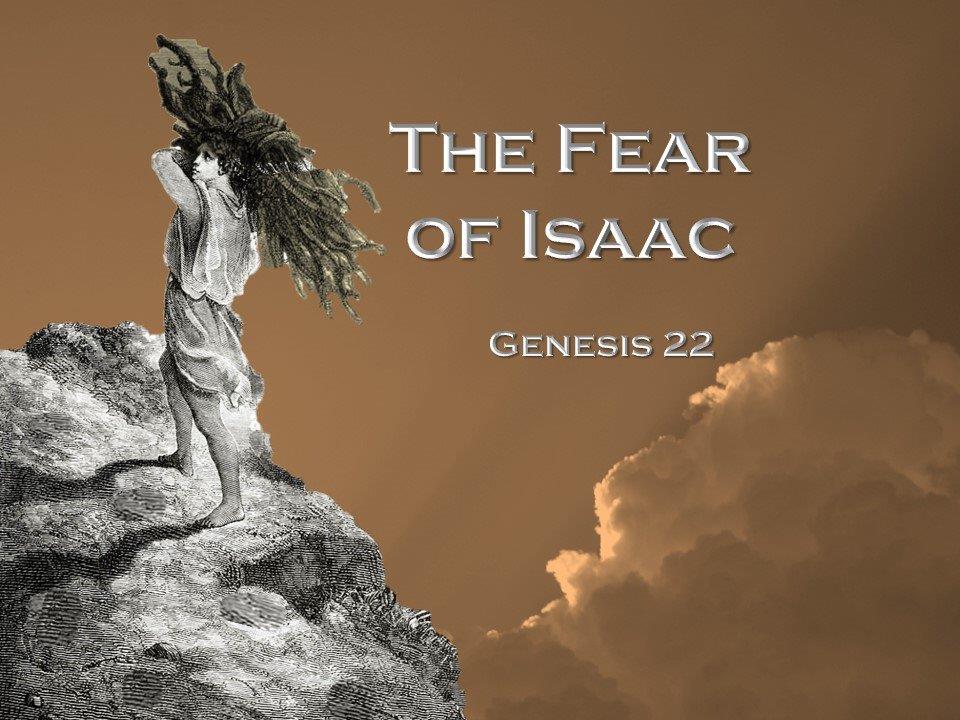
Let us turn our bibles to Genesis 22, a great chapter where we read, for the first time, the word seh in Hebrew which is lamb. This seh is here directly associated with the Messiah. Genesis, the book of beginnings, has this power to prepare the reader to see the Messiah and to better understand the nature of God.
In the very first chapter of Genesis, we read, In the beginning God created. The word God, Elohim, is in the plural while the verb created, is in singular. Here we can see the plurality of the divinity, right at the threshold of the Scriptures.
Then we see these plural pronouns such as us, and our being used for the one God. We see this in Genesis 1:26 where we read, Let Us make man in Our image. Some try to explain that God had here included the angels, but He could hardly be including them since man was to be created, not in the image of angels, but in the image of God.
And as we move deeper into this great book of Genesis, we are brought to witness a progressive revelation of God’s nature: Chapter 18 begins by telling us that the LORD appeared to Abraham, so he lifted his eyes and looked, and behold; who did he see? Three individuals were standing by him. And then we are told that one of them is called by the name of Yud-He-Vav-He, Jehovah, the proper name of God. God also converses with Abraham and dines with him. God then physically appeared to man, as we saw it in the Garden of Eden as well.
And in the next chapter, in Genesis 19, we read this powerful verse saying, Then the LORD rained brimstone and fire…from the LORD out of heavens; how can the LORD be in heaven and at the same time be on earth? This covenant and proper name of God was applied to both these physical manifestations, and while on earth, God is in heaven. We see this same thing when Yeshua was on earth and His Father was in heaven. We see God is omnipresent. These two divine manifestations from Genesis 18 and 19 should make the understanding and acceptance of the divine person of the Messiah so much easier to gasp and accept.
But it is in Chapter 22 , where facets of God’s heart and gleams of His emotions are revealed to us. This is after all, holy ground. First, let us remind ourselves that Abraham never killed his son. It was never God’s intention to see this act be carried through. It was just a test. It says it in the first verse, where we read, God tested Abraham. This story leads to the most beautiful event ever told, that of the Father in heaven, who sent His Son to die for man: This is what this whole event is really talking about.
From the story of Abraham and Isaac, we are brought deep into the account of the Gospels; right to the last moment of the life of Yeshua. Otherwise, Genesis 22 would not make sense at all. If taken out of context from the whole message of the Bible, if we remove the Messiah to which it points , then this story, will disorient the reader and the beauty of the story is totally veiled.
Let’s see how the Genesis 22 text really stresses this relation between the father and his son. The word son is mentioned 13 times in this short chapter. Notice the words “his son” in verses 3, 6, 9, and 10, and “my son” in verse 7, and in Vs.2 “your son, your only son”. This is the story of the Son, the Son of God and of God the Father sending His only begotten Son.
What about Isaac in this story? When reading bible commentaries on this narrative, they most often focus on Abraham; what he did, what he thought, and most importantly, his faith. However, little consideration is given to Isaac, yet he is the one who so closely typifies the Messiah.
Did Isaac have the faith of Abraham knowing that God will resurrect him no matter what?
We do not know. But see that Isaac was willing to go all the way, and indeed more than Abraham, for it was his own life that he was, in obedience, surrendering. His submission reminds us so much of the Messiah. He was reviled and he did not revile in return (1Pet.2:23). That is the spirit of obedience, that is the spirit of the Messiah in Isaac.
Do we appreciate the willingness of Isaac? He could have stopped this sacrifice at any time. After all, Abraham was an elderly man, and Isaac was a strong young man. But Isaac did not respond by using force. Instead, he complied. Just as Yeshua, when He was persecuted and crucified, did not use His powers to stop the inevitable, for His love is stronger than death.
Click Here for the Teaching on The Akedah: The Binding of Isaac